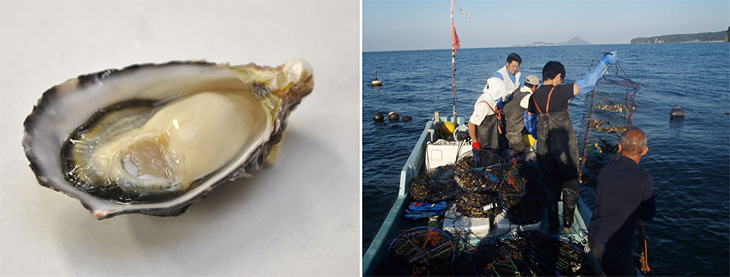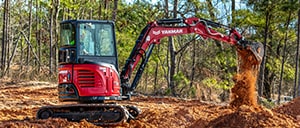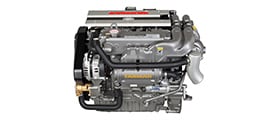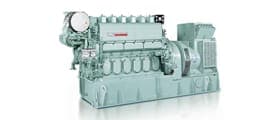Information
Utilizing Yanmar’s Advanced Farming Practices to Assist Oyster Farming in Japan
January 26, 2015
Yanmar Co., Ltd.
In collaboration with Oita Fisheries Cooperative Association (hereafter the Association), Yanmar Co., Ltd. is using its proprietary bivalve cultivation technology to raise quality oysters in Oita prefecture, Japan. Combining Yanmar’s very own onshore technology and practices for the early stages of cultivation with the offshore method Tide and deep* to farm Single-seed oysters**, Yanmar hopes its efforts will help revitalize the fisheries industry in Kunisaki city, Oita prefecture.
Yanmar Marine Farm’s onshore technology speeds up the early cultivation stages where oysters start out as larvae and mature into spat. When the spat are ready they are then transferred to the sea waters for a highly-efficient integrated system that produces mouthwatering oysters. Incorporating these advanced practices, the organizations involved plan to produce oysters intended for eating raw that will hopefully be recognized as a regional delicacy. The oysters will be labeled Kunisaki Oysters, and Yanmar hopes to expand sales in both domestic and international markets.
In 2003, Yanmar began selling feed for bivalves followed by the development of its own bivalve cultivation technology. From 2011, Yanmar has deepened its expertise in the field with single-seed oyster cultivation. In 2013, in collaboration with the Kunisaki Fisheries Cooperative, Yanmar improved efficiency by successfully incorporating the Tide and deep method. From 2014 onwards, using Yanmar’s advanced technology and practices, farming is taking place on a larger scale. Under the direction of Oita prefecture and Kunisaki city, the Kunisaki, Kunimi, Musashi, and Aki branches of the Association will trial oyster farming.
Yanmar’s Involvement:
Yanmar will supply single-seed oysters and provide an integrated system for oyster cultivation. Additionally, Yanmar will be involved in promotional activities that further the recognition of Kunisaki oysters.
Core Aim:
Be instrumental in bringing about the change from a fisheries industry that relies on harvesting wild populations to one that cultivates its own. Oyster farming has a low environmental impact and as it doesn’t require feed, it is also low cost. Because of these reasons it is a viable solution for sustainable farming into the future.
Future Targets:
Play an integral role in the cultivation and sales of Kunisaki oysters. The mid-term aim is to cultivate several million oysters annually.

right: Oyster farming in Kunisaki
*Tide and deep: By farming oysters in their natural intertidal habitat, using suspended baskets that facilitate faster growth rates, Yanmar’s practices allow for the production of high quality single-seed oysters in a reduced time period.
**Single-seed oyster cultivation: By farming oysters in their natural intertidal habitat, using suspended baskets that facilitate faster growth rates, Yanmar’s practices allow for the production of high quality single-seed oysters in a reduced time period.
- Note: Information contained in News Releases is valid at the time of publication and may differ from the most recently available information.
Inquiries:
Public Relations Group
General Affairs Div., Yanmar Co., Ltd.
TEL: +81-6-6376-6212
FAX: +81-6-6372-2455
E-mail: koho@yanmar.co.jp










